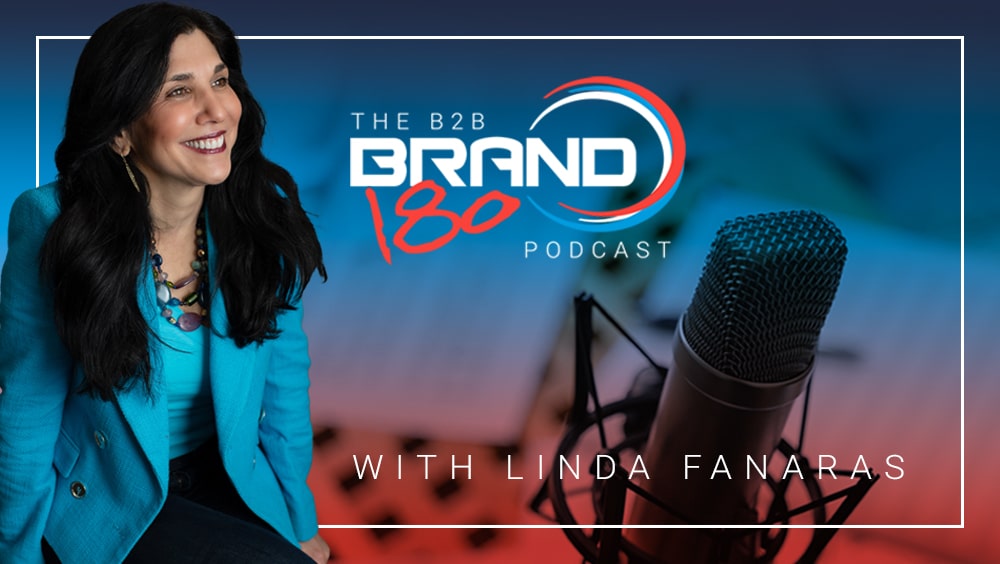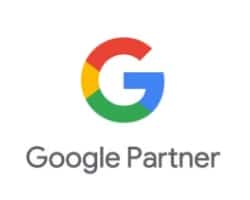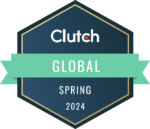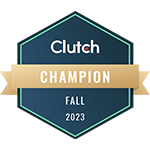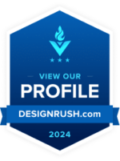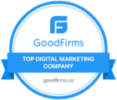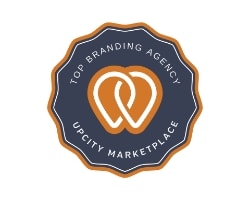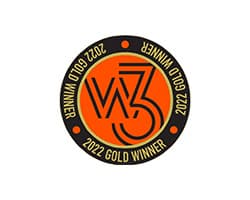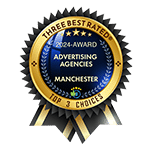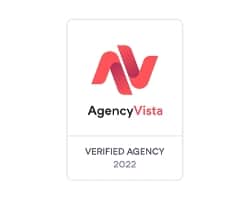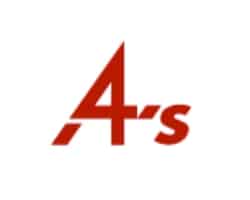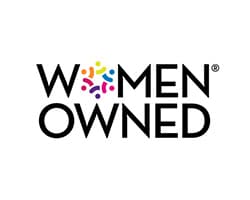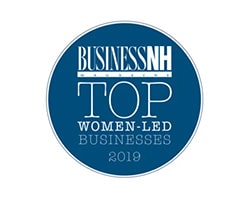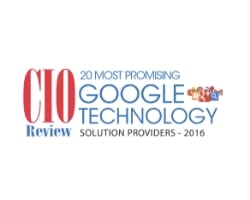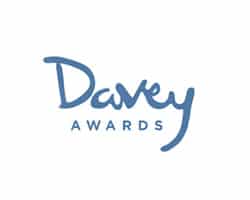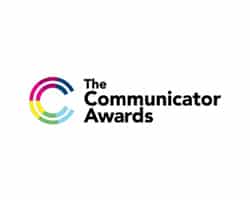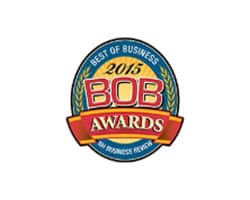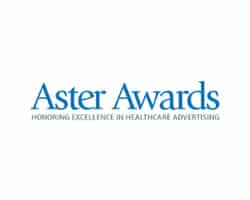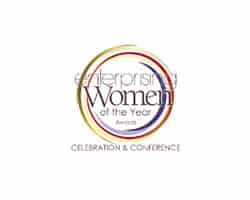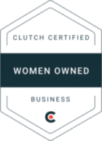Linda interviews Robb Atkinson, Director of Marketing/Public Relations at Memic about the latest best practices in B2B marketing strategy. Tune in to discover high-value B2B marketing ideas that can help accelerate your own organization’s growth.
Linda Fanaras:
Welcome to the B2B Brand 180 Podcast. Hi, I’m Linda Fanaras, CEO of Millennium Agency, and if you want to transform your B2B marketing into a powerhouse brand, then you may want to listen in today. I’m very excited to share with you our guest, Robb Atkinson, the Director of Marketing and Public Relations at Memic. Memic Group provides workers’ compensation insurance to employers with an emphasis on workplace safety. They have been growing year over year, so let’s find out how they did it. Hi Robb. Welcome to Brand 180.
Robb Atkinson:
Hi Linda. How are you doing? Thank you for inviting me onto the podcast today.
Linda Fanaras:
Yeah, it’s great to have you. So let’s start out. Do you want to tell us a little bit about yourself and what you do at Memic?
Robb Atkinson:
Sure. As you mentioned, I am the Director of Marketing and Public Relations for Memic. Memic has actually got a great story. First founded in Maine 30 years ago, we were literally born out of a crisis. The entire government shut down as a result of the worker compensation situation in Maine. It got to a point that it really, the governor at the time, Governor Kean joked, he said it became, worker compensation became a retirement plan for lawyers, which really kind of says it all. It really got out of hand and people started abusing the system and as a result, carriers started leaving the state of Maine. It got so bad, as I said, the government literally shut down 30 years ago over the 4th of July weekend. And that’s when Memic was born. So Memic is a mutual insurance company that’s headquartered in Portland. We started in Maine and really had a crisis to tackle because safety in the workplace was not good. Incidences were soaring and costs and premiums were soaring as well. Fast forward now, 30 years later we’ve been credited with drastically solving that problem. We have reduced workplace incidences by 50% in the marketplace, and we’ve drove premiums down by 60% in the marketplace in Maine. So it’s really, yeah, it’s really a tremendous success story. Our market share is close to 60% in Maine, and as a result of that, we realized we had something to offer to the rest of the nation. So now we are licensed in every state in the nation. And we are really focusing though on a core group of states along the East coast. That’s where our eastern region focuses on, and now we do more premium outside of Maine than we do inside of Maine. So it’s really growing quite nicely and it’s really an exciting story.
Linda Fanaras:
That’s great. That’s great to hear Robb. So, you know, it’s so interesting because in the insurance space, obviously some people think insurance is insurance, right? It doesn’t matter if it’s worker’s comp, general liability or some other type of business-related, you know, insurance. I think it’s challenging for a lot of insurance companies to differentiate themselves and they have to take a hard look at themselves to figure out like how should they differentiate themselves in the marketplace? How have you guys really been able to do that? Did you put a stake in the ground and say, “Hey, we’re different because of these reasons?”
Robb Atkinson:
So it’s interesting, we, we did. In Maine, it, the obvious one was it was a crisis and we needed to focus on safety. We really have shown that through our loss control efforts, the people who go out and work with businesses on the ground and, and make them safer, that if you follow our safety plans, we’re going to make you more productive and even more profitable. And what’s even more exciting, and during times of great resignation, we’re actually, we actually have a stickiness factor. So the safer your company is, the more likely an employee’s going to be a part of that company and for longer. So it has a lot of holistic health benefits for the organization as a whole. So, moving forward though, as we stretch out of Maine, we realized that not every state is in crisis. So, what’s an award-winning safety you know, a worker’s comp carrier that focuses on safety do to get that value proposition? And really what we’ve learned is that for the, again, it goes back to safety is that the like-minded insureds who want safety and want to grow and want to be more productive and more profitable, we are a really great investment for them. Yeah, a lot of other carriers will play the price game, right? And they say, “Here, your premiums are cheaper with us. Don’t go with Memic.” And what we’ve learned is that when we show them the total cost of coverage, like if they have claims, what our total services is, it really becomes a no-brainer for them in that when you look at the total cost of coverage, we have a tremendous value and we’re a partner. And that’s, that’s the other thing, that’s the other thing I really want to mention is the secret sauce for us is trusted partnerships. We want, we want to be working with our agent partners hand in glove. We want to be working with our insureds and be that trusted resource for them. So for us, the secret sauce of trying to make our brand different is really through trusted partnerships and allowing us to be that expert in their lives to help them be better.
Linda Fanaras:
Right. You know, the markets are getting so cluttered and competitive these days. There’s, you know, we have digital, we have still traditional media, we’re going to have the metaverse around the corner. What kind of tactic do you think just general companies should take when they position themselves in the market? Do you think they should take more of a practical approach or more of an emotional approach to differentiate themselves? What works better from your perspective?
Robb Atkinson:
So that’s interesting. So we’ve experimented with a, with a little bit of all of that, but you know, when we realized that for us, we’d love more, we’d love more insurance agencies to represent Memic, without a doubt. But we really want the ones that are like-minded, who like working with us, who appreciate our value proposition. And so, when we talk about the emotional componentry of it, it goes back to that relationship again. We’d rather have a better relationship with fewer agencies and to prove why we’re good partners day in, day out than to be, you know, on everybody’s dashboard and just be another, you know, a logo on their system that they can click and get a rate from.
Linda Fanaras:
Right, right. And it does also make a big difference when customers have an emotional feeling toward a brand that makes them more loyal to that brand if they get a feeling around that brand. So if you’re a trusted partner and you stand by your brand promise, however you may show that, whether it’s through service or whether it’s through. Fast response time, or whether it’s through pricing or other strategies. I mean, those, it’s that feeling that people get and, and is trying to get that across to the market as you, as you try to increase sales and, and move this along.
Robb Atkinson:
Yeah, I think you hit the nail right on the head. And I do want to put in a shameless plug for our landing page, thememicdifference.com, and we actually have all of our information there. But there’s a video there that I’d love everybody to watch because it tells the history a little bit about why worker compensation insurance is so important and what Memic did that made us different and where we’re heading now as we go for our 2025 goal and our 2030 vision.
Linda Fanaras:
Fantastic. So aside from insurance, just in general, on the B2B marketing strategies that are out there today, what strategies do you think are working and what do you think is not working anymore?
Robb Atkinson:
So, it’s funny, it’s like, there’s no surprise that email marketing, uh, you know- full disclosure, Memic works with Millennium group and work- we work with Linda and she’s excellent at helping us craft emails that are really cutting through the clutter and helping us move the needle. We recently just put one out, just the other day, got a tremendous response. We can track that response because we drove to thememicdifference.com, and we can see the numbers spike. Our underwriters are telling me that they’re getting that information back to them. It’s, it’s really good. So that’s one way of doing it. There’s no secret sauce in there, but, you know, some other things that, just again, forging those relationships, like looking to have events, regional events with local partners for doing something special, whether it’s going to the US Open for New York agents or, or something like that where we can really be a good community partner and get excited about events happening in their backyard. I think people really appreciate that. And so, we do a lot of that. And it could be small stuff too, Linda, like we just did a branded Dunkin’ Donuts card, and I don’t know if a lot of people know this, but you can go work with Dunkin’ Donuts and they’ll let you put anything that- it’ll look like your company credit card, but it’s got the Dunkin’ Donuts logo in the corner and we just pushed these out at an event on Friday, and the reaction was wonderful. People loved it, and it really turns that, that whole thing about what’s value, right? You know, so, so before, you give somebody your business card, you hope they keep it, there’s probably a shelf life to it. Maybe they’re going to scan it, you know, whatever. But now, the idea is, you get these Dunkin’ Donuts gift cards for $10, and those will go into their wallets and it’s going to have your contact information on it. It’s going to have maybe your picture on it, it’s going to have possibly your phone number. And the best part about it is when it runs low, say, call me, I’ll refill it. And if they’re being a good partner, why wouldn’t we do that? So, you know, you, you look at the cost of acquisition strategy and all of that, it really makes. Why not? Wouldn’t you do something like that?
Linda Fanaras:
Right. And every time they use that card, who are they going to think of? You, of course. I mean, I think it-
Robb Atkinson:
That’s right. Yeah, and then-
Linda Fanaras:
Yeah, go ahead.
Robb Atkinson:
Oh, and the best part is then they’re sad too when it’s over you know, it’s like, “Oh man, oh no.” You’ve got to call the person up and “Hey, yeah, I need more coffee. I need my Dunks.”
Linda Fanaras:
That’s fantastic. Oh yeah, no, I know. I’ve been going to a lot of conferences lately and you go from table to table to table, what do you see? It’s always the same tchotchkes, right? You’ve got the USBs, you’ve got the notepads, the pens, the cups, the this, the that. I mean, imagine if you’re able- imagine if you’re able to get something like a Dunkin’ Donuts card. I mean, that would be, that would be a treat.
Robb Atkinson:
Yeah. And we’ve talked about this before. It’s like, just from a good person on this planet’s perspective, the amount of plastic at these trade shows are shocking. And the amount of things like- I checked in the other day at the Hyatt where a big event was happening, and I was given a gift bag from one of my competitors. And I got to tell you, it was filled with… it looked like junk. There was like, I was like, I didn’t- it looked like somebody cleaned out their desk with old plastic stuff and, “Here you go. Aren’t you excited to be part of our company?” And I was like, we’re totally missing the mark sometimes. And what, instead of volume of tchotchkes that we pass out is understanding what the value is of your company and how do you translate that into everything you do, especially with the tchotchkes and, and just being a good global citizen and reducing your plastic footprint has got to be something we all start, got to start talking about. Because those trade shows are just, it’s piled high.
Linda Fanaras:
It is piled high and you’re so right on that. I mean, if you stayed, if you happen to stay till the end of the conference, you can be sure that they’ll be just like throwing you their specialties, promos at you so you can take them home so they don’t have to. So, I totally agree with you on the Dunkin’ Donuts strategy. I think that’s a great idea. Yeah, no, I do. So I think there’s a lot of challenges in the market today, obviously, as far as hiring employees and, and keeping them and recruiting them and keeping them happy. Are there strategies that you can think of that you think would help companies learn about how to build a culture and a strategy and something that would keep employees engaged in the long run? Because I think that is the hard thing to do today.
Robb Atkinson:
Yeah, I think tools like LinkedIn and Indeed are certainly still, you know, quivers to be used, you know, to shoot your arrows and you should be using them. But I think it’s got to be a much more in-depth look at your company, and one of the things that we’ve done is where, actually today launching a new landing page for our careers and HR people, which has a more robust kind of who we are as a company, more about our testimonials from people and specific jobs and really just more of a rich environment. And the other thing too is we’ve really had to shift it from just putting out like the Indeed Ads and LinkedIn, and we’re doing commercials and using things like everything from, we’re experimenting with OTT in New York City. We’re experimenting with, we’ve done some ads in Maine that have just been fantastic on the local television station and a really well-done television ad has really driven the needle on help in hiring. We’ve done geofencing, so we’ve even circled some of our competitors when we’re having difficulty finding certain jobs, you know, and also just looking at trends in the marketplace to see what groups of people are moving in the workplace and how can we capture them to get them excited about insurance. You know, it’s funny, I’m relatively new to the insurance world. My background is in television and marketing and I, I, but I love it. And, you know, it’s funny, the more people I get excited about insurance, the, you know, it’s, I feel like I’m on a mission because it’s really a great opportunity. A great, usually they’re great companies and it’s somewhat recession proof, right? You know, typically, you don’t see the dramatic downturns in a recession like you do everywhere else in the insurance world. So, great company, great benefits, and great industry, great people.
Linda Fanaras:
That’s, that’s fantastic. I know, it’s becoming more and more challenging for companies to recruit and retain their employees, and I’m always looking for new ideas and strategies to keep that in place. We’ve had some clients in the past start to really build a culture that works. There’s been so many changes about creating these sort of collaborative environments, open concepts, and then now many people are not even in the offices to be able to take advantage of that. So they’re working from home and trying to figure that out. So I’m always looking for sort of innovative ways, how do we connect employees with the corporate world in a way that is meaningful and is, it is, it does become more and more challenging every day.
Robb Atkinson:
And I, I think, I think one of the big things is, and I know you’ve done work on this in the past, is like making sure that the company understands their values. Making sure those values are shared among the employees. And then you can kind of use those success stories within the company to help attract like-minded, potential employees when you go out and do your recruiting efforts. And that’s been really successful for us too, is like, you know, a lot of people just don’t want to work for another company anymore. They want to work for a company they believe in, right? They’re doing the right thing, has transparency, empathy, all these things that people like to talk about. But you know, when a company actually does those things, it’s really a difference in terms of somebody’s, how they want to be a part of that company and what that culture is of the company and becoming a part of that is, is really important to them.
Linda Fanaras:
Yeah, no, that’s absolutely true. Are you seeing any changes in the market? I mean, obviously the economy is at a very new place right now. Even, you know, the world in general, there’s a lot going on. So how do you like brands like Memic, what are you guys thinking about? Is that impacting your business at all? Are you taking that into consideration as you move forward from a B2B marketing perspective?
Robb Atkinson:
Yeah, absolutely. All those things are on our watchlist and we monitor them to make sure that, you know, and do threat assessments to make sure that what we’re doing is mitigating those things and that sometimes require us rolling up our sleeves and working harder and digging deeper with our trusted partners. But I will say though, the third quarter was good, was very strong. We think, we think fourth quarter’s going to be strong too. So, and I think they just came out with a 3.2 growth in the third quarter just announced, so, yeah. So, I mean, I don’t think, I don’t know how, if it’s going to stay at that level, but we certainly saw it and were encouraged by the trend it’s going. And the hiring portion of it helps us as a worker compensation company, because obviously the more people on the rolls of a company, the better, the better we’re going to do. But I think overall the economy has been, the challenges, they’ve been difficult, not insurmountable and we’re working through them like everybody else. But again, certain sectors are, are probably faring better than others in this economy.
Linda Fanaras:
Yep. No, that makes complete sense. Are there other marketing strategies or tactics you think would be helpful for the audience to learn about that you’ve maybe tested? I know you do a lot of email marketing. I know it looks like you’re doing some OTT and digital marketing as well. Are you using anything else that you think might be of value that might be a little out of the box?
Robb Atkinson:
Well, like one thing that we could talk about is, again shameless plug, plug for Millennium, but Millennium is helping us reach target agents in a specific market. And we’re doing it through delivering cookies to specific individuals. And again, it’s all about creating those relationships and things like that and overcoming obstacles. But, if you can really get in with somebody and show them your value and show them your willingness to be a good partner and they’re on that same bend, you’re going to succeed every single time, I think. And that’s really a play for the long haul. It’s not the quick, easy play, unfortunately because, you know, I mean, just think about how long it takes you to form trusting, lasting relationships in your life, but when you do the effort and make it work, I think you’ll find that it’s going to pay dividends for years to come.
Linda Fanaras:
Yeah, and that’s actually a really great point because people can hide behind their email today. They don’t have to respond to you. They don’t have to pick up the phone. So I think when you use strategies like, you know, maybe they’re customized cookies with logos and a key message. And you’re sending what I call the high value gift kit. Chances are very high that they will talk to you because, frankly, they most likely probably feel a little guilty if they don’t. So here’s a chance to really get your name across, build some brand, and be able to get that introduction that you’ve been trying to get and hadn’t had much luck doing. So I, I do love those types of strategies. It’s a little bit out of the box. It’s not typical. But they, they do really work well. We’ve done them in the past, especially for the high-profile companies that you might be trying to go after.
Robb Atkinson:
Right. Because in a B2B world, we don’t, like I said earlier, we don’t need every single agent in the country, but we do want the best ones and we do want ones that are like-minded. And that’s really the other part about doing those campaigns is there’s lead qualification, right? So sometimes it takes an investment. And hearing a no sometimes is probably even more valuable than the yes, because then you’re now spending time, effort, and money marketing to somebody who isn’t invested in, in your success. And, and that’s something, we’re looking at right now of like, there’s a lot of different carriers out there. People have different relationships and if we aren’t perfect for everybody, we get that. But, you know, I think it’s important that we both recognize that and go work with people who they want to work with. And when you do find those like-minded things, you’re not chasing bad leads, you’re not waiting on calls that aren’t going to happen, and it’s just a much more productive lifestyle, I think.
Linda Fanaras:
Yeah. No, that’s actually a great point is trying to figure out whether they truly are interested whether to get that that no versus the yes. And like you said, I think getting the no is equally as valuable as getting the yes. And I think a lot of people that go after and try to drive leads, like to hang on to those people there, those leads that are, might be maybes, and those are the ones that most likely will not translate into potential sales. And you can spend a lot of your time trying to chase those without much ROI. So I absolutely like that point that you made about, hey, if you have to go after the no, go after the no. If you’re getting the yes or-
Robb Atkinson:
Yeah, and then, right, and then better yet, you can report back and say to your, you know, your senior management, “No, those people that, that’s not the right company for us. We’ll do better if we double down with these guys.” And, from a marketing point of view, I appreciate that so much better because the more narrow our focus is, then we can do those highly specialized gift boxes. We can do trips. We can do, like I mentioned, like, you know, US Open trips or something like that, you know, that provides high value, allows us to build the relationship. And that’s something I think that’s, that’s worked for us really well.
Linda Fanaras:
Yeah. That’s great. Well, thank you, Robb. This has been fantastic. You’ve given that some great insight. Thanks for sharing information about Memic. That’s been great to hear what’s working, what’s not working. So I just want to thank Robb Atkinson, Director of Marketing and Public Relations at Memic for joining the B2B 180 podcast today. And if you like what you heard, just press the like, share or subscribe button today. Thank you very much.





